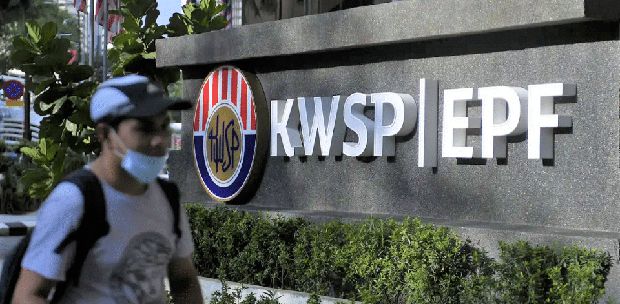KUALA LUMPUR: In the immediate term, the Employees Provident Fund (EPF) is focused on two new sustainable investment (SI) initiatives, the development of its stewardship policy and creating a baseline measurement of its portfolio emissions level.
The provident fund plans to set up short-, medium- and long-term decarbonisation targets and a roadmap.
On the planned stewardship policy, EPF said it will provide a clear direction for the EPF's stewardship responsibilities while taking into account the diverse asset classes and geographies we invest in.
The EPF plans to have a fully environmental, social, and governance (ESG) compliant portfolio by 2030 and a climate neutral portfolio by 2050.
"As we continue to drive the sustainability agenda within the capital markets, the EPF remains unwavering in its commitment to integrate ESG considerations within its investment strategies and processes. This underscores our steadfast mission of delivering sustainable returns for our members over the long term, the EPF said in its 2022 annual report published today.
In 2022, EPF made significant strides in strengthening its SI practices through initiatives spearheaded by the EPF Sustainable Investment Centre (SIC).
One of the cornerstone achievements was the launch of the EPF sustainable investment policy, priority issue policies, and priority sector policies on Mar 31, 2022.
These policies served as guides to the EPF in making better informed and holistic investment decisions by integrating ESG considerations in its investment management processes.
The priority issue policies currently include two priority issues: climate change and workers' well-being.
To integrate these priority issues, the EPF has developed issues pecific ESG expectations in line with global standards, national commitments, and best practices.
Going forward, these focus areas may be reviewed to factor in the latest developments.
Priority sector policies cover six priority sectors, namely palm oil, oil and gas, mining, power generation, banking, and construction, which were identified based on the EPF's exposure and the ESG risks inherent in them.
The ESG expectations in these policies are prescriptive in nature to account for the material matters of the respective sectors as well as aligning to global standards, local commitments and nuances.
All of the EPF's 16 external fund managers signed the SI pledge to include ESG considerations into their investment decision making processes.
"An integral part of our investment process enhancement is the Sustainability Review which involves integrating ESG considerations directly into the investment decisionmaking process. EPF SIC offers independent analyses on all new investment proposals, focusing on compliance with EPF SI policies, potential material ESG risks, and any prior ESG controversies linked to the investee company or asset," EPF said in the report.
Since the launch of its SI policies, the EPF has had a series of engagements with the EPF's Top 50 domestic listed equities to help align these investee companies with its policies.
By the end of 2022, 34 of these companies had already been engaged, with plans to complete the remainder by June 2023.
The initiative forms an integral part of its efforts in achieving a fully ESG compliant portfolio by 2030.





